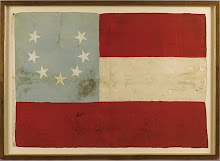Italian Politicians Furious over Anti-Crucifix Decision by European Human Rights Court
By Hilary White
ROME, November 4, 2009
The ruling by the European Court of Human Rights (ECHR) against crucifixes in Italian schools has garnered outrage from many corners in Italy, including senior officials of the Vatican and the Italian Parliament as well as local political and social groups. The news made the front page of most national Italian papers.
The ruling comes in response to a complaint by an Italian citizen of Finish origin, Soile Lautsi, who now lives near Padua, who had asked her local public school to remove crucifixes that she deemed offensive. Lautsi had campaigned through the courts for eight years against the presence of crucifixes in Italy's classrooms. The ECHR ruling granted her compensation of five thousand Euros for moral damages.
The ruling said, "The compulsory display of a symbol of a given confession in premises used by the public authorities ... restricted the right of parents to educate their children in conformity with their convictions."
Vatican spokesman, Father Federico Lombardi SJ, said that the decision had been greeted with "astonishment" in the Vatican. "The Crucified, remember, was always a sign of God's offer of love and union and reception for all humanity," Lombardi said. For this reason he said he is "sorry that it would be regarded as a sign of division, exclusion or restriction of freedom. This is not in the common sentiment of our people."
Lombardi defended the presence of Christianity in Italian schools saying, "Religion makes a valuable contribution to the training and moral growth of individuals, and is an essential component of our civilization. It is wrong and short sighted to want to exclude this from the educational reality."
The Italian bishops' conference issued a statement saying the ruling is "likely to artificially separate the national identity from its cultural and spiritual matrix." The bishops called it an example of Europe's "degeneration into secularism, hostility to all forms of the political and cultural importance of religion."
Reactions from government and political leaders, however, have been even more blunt, with most calling the ruling a serious offense against Italian culture, history and independence.
Minister of Education Mariastella Gelmini said that the government is appealing the decision. "Our Constitution rightly recognizes a particular value of the Catholic religion. I would not like some of the rules referred to by the judges in Strasbourg would be inconsistent with our Constitution," she said, adding, "The crucifix represents Italy and to defend its presence in schools means to defend our tradition."
Vatican secretary of state, Cardinal Tarcisio Bertone, said that the Vatican "appreciates" the efforts against the ruling by the government and said he hoped that other European governments would follow. But Bertone said that it is for the laity to react, saying the Holy See "cannot interfere with the decisions of the European Court."
Italian Foreign minister, Franco Frattini, however, said the ruling is "a fatal blow to Europe of values and rights." Interior Minister, Roberto Maroni, called it a "mistake and an act of insensitivity" and the fruit of a "partial and ideological" court.
Agriculture Minister Luca Zaia called it a "shameful" decision and said, "Pending clarification of the reasons I cannot but side with all those, believers or not, religious or not, Christian or not, who feel aggrieved by an abstract and pseudo democratic ruling.
"The one who is offending the feelings of the peoples of Europe born from Christianity is without doubt the Strasbourg court. Without identity there are peoples, and without Christianity there would be no Europe."
Minister of Youth, Giorgia Meloni, said, "The crucifix is a symbol inextricably tied to the identity of European peoples, even beyond its religious meaning." This was backed up by Minister of Economic Development Claudio Scajola who called the crucifix a "universal symbol of love, gentleness and peace."
Union of Christian and Centre Democrats (UDC) party leader Pier Ferdinando Casini said, "The decision to reject the presence of the crucifix in schools is the first consequence of the timidity of European governments that have refused to mention the Christian roots in the European Constitution."
Even the leader of Italy's centre-left Partito Democratico (PD), Pierluigi Bersani, speaking at the headquarters of the European Commission, said the decision in this "delicate area" is where "common sense becomes a victim of the law." "I think," he continued, "that an ancient tradition as that of the crucifix cannot be offensive to anyone."
A local paper of the Veneto region, that includes Padua, said the area is for one day declaring "secession from Europe" in rebellion. Corriere del Veneto quoted MEP Bizzotto Mara saying, "To prohibit the crucifix in our schools is a glaring idiocy." Another Veneto politician called for a rebellion and for crucifixes to be displayed in every classroom and every office.
Bricolo Frederick, chairman of the Senate of the Carroccio, said, "At home no one can impose rules that are against our history and our culture. Even those European organizations which demonstrate increasingly distant from the belief and the will of our peoples."
Paul Caratossidis, coordinator of Forza Nuova, said that anyone trying to remove crucifixes from Veneto schools would face a "human wall" of opposition, "Even if it means risking the illegality."
The Colonial Flag

Subscribe to:
Post Comments (Atom)









No comments:
Post a Comment
Thank you for sharing your statements with us! Please leave a name with your comment. Please keep in mind too that this is a Christian site, and I would appreciate no improper language. Thank you.